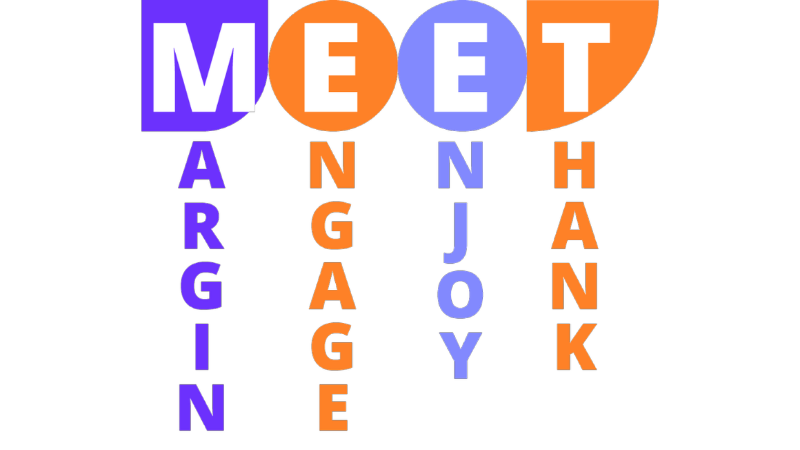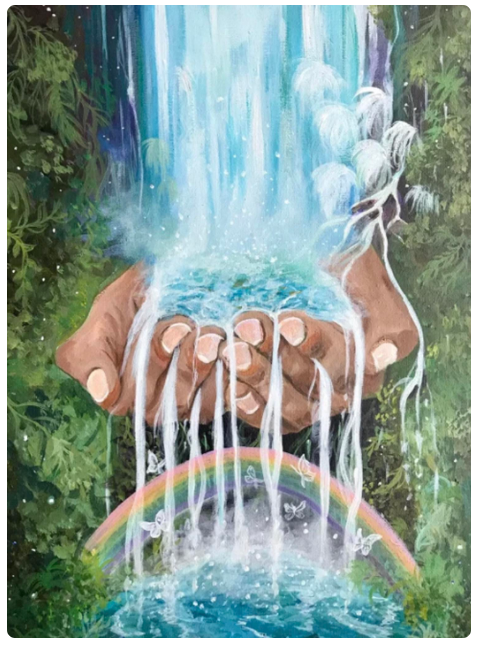Towards a Clearer Vision: A Review of Chris Llewellyn’s "Honest"
Since it was released recently, I've been listening to Chris Llewellyn’s new solo album Honest, and I believe I'll be listening to it for some time to come. The album captures the heart of what it means to follow Jesus, demonstrating the importance of an authentic relationship that includes honesty and wrestling, allowing for doubt in the midst of faith. While the album calls out current issues in the modern evangelical church, it also directs listeners towards a clearer vision of what it means to follow Jesus, using the metaphor of "coming home" to describe Jesus' constant, welcoming love and our call to emulate that love through inviting in those who are also hurting, lost, and broken.
https://genius.com/Chris-llewellyn-honest-lyrics
The album begins with the following lyrics:
“If you don’t mind broken things, then you can have my heart; no filter, just the way it is. It’s far from perfect, God, but it’s real and it’s what I’ve got. No varnish, and no hiding place.”
Chris Llewellyn, "Honest"
Our God knows us fully, and he desires an authentic relationship with us; not one hindered by the masking of our feelings or the putting on of false faces, to use the metaphor of Lewis’ Till We Have Faces. The album’s lyrics, many of which come straight from scripture, illustrate the truth that doubt and faith can live side-by-side. Indeed, faith involves choosing to follow Christ despite our doubts and fears, in the midst of the mystery. Thus, Honest sets an example for the kind of Christian art that can be both worshipful and questioning, prophetically calling out problems in the church while also reaffirming the desire to follow Christ with childlike wonder. Indeed, there is “room for who I am, all my doubt and questioning” at the table.
The album’s artwork and several of its songs make use of the imagery of rolling the dice and gambling on God’s goodness:
“You are love, and nothing else, and nothing less. Your love will always be the safest bet. I’m all in.”
Chris Llewellyn, "Gamble on Your Goodness"
These ideas echo C.S. Lewis’ Puddleglum from The Chronicles of Narnia, who chose to believe in Narnia despite the darkness of the Underland; who chose to gamble on the goodness of Aslan and still believe in the magic, despite, at the time, not seeing it:
“One word, Ma’am,” he said, coming back from the fire; limping, because of the pain. “One word. All you’ve been saying is quite right, I shouldn’t wonder. I’m a chap who always liked to know the worst and then put the best face I can on it. So I won’t deny any of what you said. But there’s one thing more to be said, even so. Suppose we have only dreamed, or made up, all those things—trees and grass and sun and moon and stars and Aslan himself. Suppose we have. Then all I can say is that, in that case, the made-up things seem a good deal more important than the real ones. Suppose this black pit of a kingdom of yours is the only world. Well, it strikes me as a pretty poor one. And that’s a funny thing, when you come to think of it. We’re just babies making up a game, if you’re right. But four babies playing a game can make a play-world which licks your real world hollow. That’s why I’m going to stand by the play-world. I’m on Aslan’s side even if there isn’t any Aslan to lead it.”
C. S. Lewis, The Silver Chair
I, too, would rather “still believe wild dreams than live in a world where faith sleeps”, gambling on the goodness and love of Jesus. If love covers over a multitude of sins, and if Jesus himself defined the entirety of the law as “love your neighbor as yourself” and “love the lord your God with all your heart, soul, and mind”, than that love is what I want to focus on. The love of Jesus is, indeed, “a risk worth taking”.
And yet, it is possible to remain rooted in the love of Jesus while also asking questions—following Jesus alone means turning away from “bad religion”. Leaving behind religious and/or political elements of Christianity does not mean turning away from our faith; rather, it is a part of the process of following Jesus fully. If we are to truly follow Christ with our hearts, souls, and minds, we must be willing to let everything else go. In this sense, deconstruction is not a bad thing, as we strip away the false religious and political associations that have become connected with what it means to be a Christian in the present age. If Jesus is truly our King, not the modern evangelical church, then we must be willing to be ostracized and even exiled from our religious and social circles, if need be, in order to stand for the truth; in order to stand for the love of Jesus.
Following Jesus often leads down the path of exile. A part of following Jesus down the narrow road includes the willingness to count the cost—a cost that could involve, in many cases, a loss of relationships and a loss of our prior identity—in order to find our truer identity in him. This process actually leads to a closer relationship with Jesus, as we “chase the mysteries with everything, the cross before, the world behind”. When we are willing to let everything else go, that is when we are truly following Jesus with everything we have.
And yet, in the midst of that exile, there is the hope of home:
“There will always be a place for me here. So I pull a chair and grab a plate, forget about that mess I’ve made, there will always be a place for me here. Your love’s like being fully known, fully known, fully wanted. It feels like when you’ve seen it all, every flaw, that I’m accepted. It feels like I don’t have to fight, don’t have to strive to show I’m worth it… your love’s like coming home.”
Chris Llewellyn, "Mother's House"
Not only is this a beautiful representation of the love of Jesus to us, it is also a call for how we should represent the love of Jesus to others. Hospitality is an essential aspect of living out the Gospel, as we invite those who are hurting, lost, and broken into that same love of Jesus; after all, “radically ordinary hospitality is this: using your Christian home in a daily way that seeks to make strangers neighbors, and neighbors family of God” (Rosaria Butterfield, The Gospel Comes With a Housekey).
“Lord, we need that new wine, and new faces round the table.
Lord we got a free wine, that open invitation.
Let them come running,
Because if they're banging on the doors,
Then we can't leave them out in the cold.”
Chris Llewellyn, "New Wine (Is My Bible A Barricade?)"
In the midst of his questioning and prophetic calling out of hypocrisy in the church, Chris affirms his belief and faith—much like the psalmist David did in the midst of his laments. While also wrestling with his doubts and dealing with disappointment, he affirms his desire to “still believe in the magic”.
C.S. Lewis said in Mere Christianity that God “wants a child’s heart, but a grown-up’s head. He wants us to be simple, single-minded, affectionate, and teachable, as good children are; but He also wants every bit of intelligence we have to be alert at its job, and in first-class fighting trim.” Chris affirms a desire to have the faith and wonder of a child, even as he deals with the doubts and recognition of hypocrisy that come with becoming a mature Christian. We are called to hold a childlike faith in Jesus while also gaining the maturity required to stand against injustice and refuse to serve both God and a religious agenda or a political party.
“Are we all toxic? Are we a kingdom or a wasteland? Are we the balm of Gilead or a poison to the world? Are we the cure or the infection? Are we the hands and feet of Christ, or are we devils in disguise? I can’t tell. I won’t be bought, I won’t comply, I won’t serve a dollar sign, won’t conform to your desires or bow down to the flag… Caesar is not my lord. I’ve only got one Lord.”
Chris Llewellyn, "Toxic"
In the end, the anthem of the album is one of service to King Jesus, acknowledging him as our one and only Lord. The final song of the album acknowledges that “faith is the greatest kind of risk”; and yet it also expresses a willingness to take that risk and embrace the mystery. Choosing the follow Jesus and Jesus alone, despite the multitude of conflicting voices in our cultures, social circles, and churches, is hard. And yet this is a part of our call as the Church, to be a part of Jesus' redemption story, bringing salt and light and love to this earth even as we are waiting for all things to be made new. If we really believe in this story, then we must be lights in the present darkness; and the way to do this, is by loving God and loving our neighbor, no matter how different they are from us, no matter how much we disagree with them. The Gospel of Jesus is a Gospel of love. Like Chris, I want to lose bad religion, saying yes and Amen to Jesus alone,
“...singing of the light before it comes. Let daylight break to the sound of grace. Singing halleluiah till it hurts, even as the darkness roams the earth. Let daylight break."
Chris Llewelleyn, "Can You Be Trusted?"
You can listen to "Honest" everywhere, now (linked to the album on Spotify).
About the author: Dr. Addison Lucchi is a Professor of English & Research Librarian at MidAmerica Nazarene University. He, his wife, and two children live in Ostrava, Czech Republic. During their first few years in the country, they are focused on learning the Czech language and building community, seeking to serve Jesus and represent his love through their lives and work.
Staying Connected or Learning More
Help share this and other blogs with your friends and ministry leaders! It would also be a huge help if you could please follow us on social media via the links below! Thank you!
If you would like to receive leadership updates, link here to stay current on All Nations International’s news and prayer efforts! To learn more about All Nations today, visit: www.allnations.international!
Are you wondering if you are wired to go? This area on our web site will help you!
We have plenty other resources (devotion, book club, events) and a monthly global prayer for the neglected! You are welcome to join us.
Give today to see the neglected globally reached — the least, the last, and the lost!
Reaching the neglected globally — the least, the last, and the lost since 1993.













